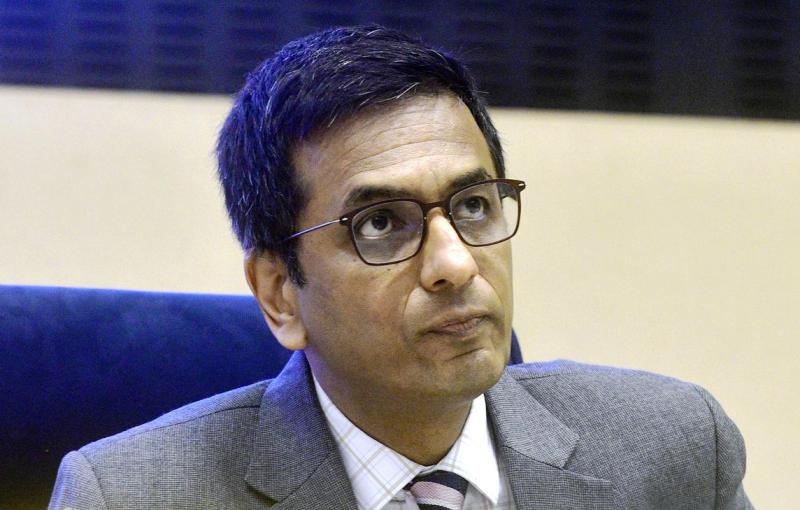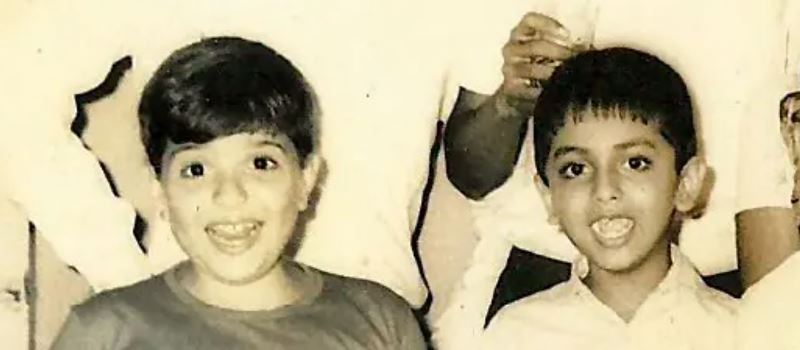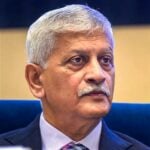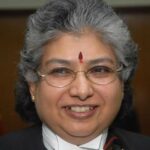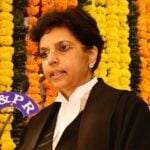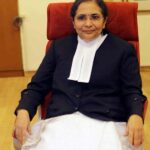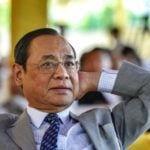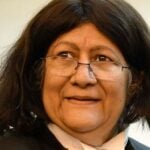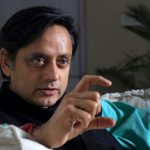Justice DY Chandrachud Age, Caste, Wife, Children, Family, Biography
Quick Info→
Hometown: Mumbai
Wife: Kalpana Das
Age: 65 Years
| Bio/Wiki | |
|---|---|
| Full name | Dhananjaya Yeshwant Chandrachud [1]Live Law |
| Profession | Lawyer |
| Famous for | Being the 50th Chief Justice of India |
| Judicial Service | |
| Service Years | 1982-2024 |
| Designation(s) | • Additional Solicitor General (1998 to 2000) • Judge of Bombay High Court (29 March 2000 – 30 October 2013) • 45th Chief Justice of Allahabad High Court (31 October 2013 – 12 May 2016) • Judge of Supreme Court of India (13 May 2016 - 9 November 2022) • 50th Chief Justice of India (9 November 2022 - 10 November 2024) |
| Notable Judgement(s) | As Judge of the Supreme Court of India Right to Privacy Verdict A landmark decision by the SC in Justice K. S. Puttaswamy (Retd.) & Anr. vs Union Of India & Ors. (2017) case upheld that the right to privacy was protected as an intrinsic part of the right to life and personal liberty under Article 21 and as a part of the freedoms guaranteed by Part III of the Constitution. To quote from the judgment "Dignity cannot exist without privacy. Both reside within the inalienable values of life, liberty and freedom which the Constitution has recognised. Privacy is the ultimate expression of the sanctity of the individual. It is a constitutional value which straddles across the spectrum of fundamental rights and protects for the individual a zone of choice and self-determination." The judgment authored by him (with 3 other judges, Justice J.S. Khehar, Justice R.K. Agarwal, and Justice S. Abdul Nazeer) in the Puttaswamy judgment featured a section titled “discordant notes.” The section featured two Supreme Court decisions, the first being the judgment in ADM Jabalpur v Shivakant Shukla (1976) decision and the second case was Suresh Kumar Koushal v. Naz Foundation (2013). In the Suresh Kumar Koushal v. Naz Foundation (2013), a two-judge Supreme Court bench reinstated Section 377 of the Indian Penal Code which criminalized homosexuality. DY Chandrachud's judgement came down heavily on Justice Singhvi’s judgment in the Koushal case. To quote from the judgment "The right to privacy and the protection of sexual orientation lie at the core of the fundamental rights guaranteed by Articles 14, 15 and 21 of the constitution… [LGBT] rights are not so-called but are real rights founded on sound constitutional doctrine. They inhere in the right to life. They dwell in privacy and dignity. They constitute the essence of liberty and freedom. Sexual orientation is an essential component of identity. Equal protection demands protection of the identity of every individual without discrimination.” Secondly, his judgment authored by him also overturned Justice Y.V. Chandrachud’s (DY Chandrachud's father’s) judgment in ADM Jabalpur v Shivakant Shukla (1976), who had agreed with the majority in holding that citizens’ fundamental rights could be suspended during the Emergency. Decriminalising Section 377 A landmark decision by the SC in Navtej Singh Johar v. Union of India (2018) case decriminalised all consensual sex among adults, including homosexual sex. On 6 September 2018, a five-judge bench, which included Justice DY Chandrachud, struck down the 158-year-old colonial law under Section 377 of the IPC. While delivering the judgement, he stressed that this case was much more than just decriminalising a provision He said, “it is about an aspiration to realise constitutional rights and equal existence of LGBT community as other citizens." Screening of the Bhobishyoter Bhoot In 2019, in the Indibility Creative Pvt Ltd v State of West Bengal case, he authored a judgment which imposed a fine on the State of West Bengal and granted remedial compensation for disallowing the screening of the political satire Bhobishyoter Bhoot. The SC held that the ban imposed by the West Bengal Government on the film was unconstitutional stating that the state had violated the petitioners’ right to freedom of expression under Article 19(1)(a) of the Constitution. Justice Chandrachud wrote that "free speech cannot be gagged for fear of the mob." UPSC Jihad Case In 2020, a three-judge Bench headed by Justice Chandrachud, heard a plea for a pre-telecast ban imposed on the programme "UPSC Jihad" on Sudarshan TV. The bench observed that while Sudarshan TV was free to exercise its journalistic privilege to investigate an organisation’s funding in the public interest, it had no right to make offensive and hurtful comments about the entire Muslim community. Reportedly, the show, anchored by Suresh Chavhanke, claimed that members of the Muslim community had been attempting to infiltrate the civil services. Justice Chandrachud observed the show displayed flames in the background of a clip showing speeches and characters in skull caps, beards, and green T-shirts. Chandrachud said, "Questions are asked why IAS and IPS Association does not act when [AIMIM MP Asaduddin] Owaisi asks Muslims to join civil services and flames are shown in background…there are remarks like haramkhor…. Charts are shown about increasing number of Muslims in civil service and there are pictorial representations." When Senior Advocate Shyam Divan argued that he would strongly oppose the stay on the programme citing "it was a question of freedom of speech," Justice Chandrachud responded, "Your client is doing a disservice to the nation and is not accepting India is a melting point of diverse cultures. Your client needs to exercise his freedom with caution.” Expanding the Concept of Family A landmark decision by the SC in the Deepika Singh v. Central Administrative Tribunal (2022) case widened the definition of ‘family’ stating “familial relationships may take the form of domestic, unmarried partnerships or queer relationships.” The Court was hearing an appeal filed by Deepika who worked as a nurse at the Postgraduate Institute of Medical Education and Research (PGIMER) in Chandigarh. The PGIMER denied her application for maternity leave after the birth of her first biological child stating that she had previously availed her maternity leave to care for her husband’s children from his previous marriage. Her petition for an allowance was denied by the Central Administrative Tribunal and the Punjab and Haryana High Court. A two-judge SC bench consisting of Justice Chandrachud and Justice Bopanna ruled in the favor of Deepika, and said, "Familial relationships may take the form of domestic, unmarried partnerships or queer relationships. A household may be a single parent household for any number of reasons, including the death of a spouse, separation, or divorce. Similarly, the guardians and caretakers (who traditionally occupy the roles of the “mother” and the “father”) of children may change with remarriage, adoption, or fostering. These manifestations of love and of families may not be typical but they are as real as their traditional counterparts." 2018 Suicide Abetment Case In 2018, Justice Chandrachud authored the judgment through which bail was granted to Arnab Goswami, the Editor-In-Chief of Republic TV. Arnab was arrested by the Mumbai police case for abetting the suicide of Alibaug-based interior designer Anvay Naik and his mother Kumud Naik. Justice Chandrachud noted that it was important to ensure that criminal law did not become a tool for the selective harassment of citizens. Sabarimala Verdict On 28 September 2018, the SC in a 4-1 majority judgment ruled that the practice of banning women of menstrual age from the temple violated the fundamental rights of women. Former CJI Dipak Misra, and Justices A M Khanwilkar, Rohinton Nariman, and D Y Chandrachud wrote the majority opinion, while Justice Indu Malhotra wrote the lone dissent. To quote from his judgement, "Court must lean against granting constitutional protection to a claim which derogates from the dignity of women as equal holders of rights and protections. Does the Constitution permit this as basis to exclude women from worship? Does the fact that a woman has a physiological feature – of being in a menstruating age – entitle anybody or a group to subject her to exclusion from religious worship? To exclude women is derogatory to an equal citizenship.” Quashing the Adultery Law On 27 September 2018, a five-judge bench, which included Justice DY Chandrachud, declared the adultery law unconstitutional in the Joseph Shine v Union of India (2017) case. Previously, under Section 497 of the IPC, which dealt with adultery, a man who had consensual sexual intercourse with the wife of another man without that husband's consent or connivance was fined or sentenced to a five-year jail term. As the law defined women as an abettor, the wife was exempt from punishment. He observed, "The law on adultery enforces a construct of marriage where one partner is to cede her sexual autonomy to the other. Being antithetical to the constitutional guarantees of liberty, dignity and equality, Section 497 does not pass constitutional muster." Interestingly, in 1985, the then CJI YV Chandrachud (DY Chandrachud's father) along with Justices RS Pathak and AN Sen upheld the validity of Section 497. Abortion Rights A three-judge bench of the Supreme Court, comprising Justices DY Chandrachud, JB Pardiwala and AS Bopanna ruled that all women, regardless of their marital status, were entitled to benefits of safe and legal abortion till 24 weeks of pregnancy. The SC said that any distinction between a married and an unmarried woman under abortion laws was "artificial and constitutionally unsustainable." In the landmark decision, Justice DY Chandrachud recognised marital rape as a crime. The SC held that “sexual assault by a man of his wife can take the form of rape” and gave women the right to an abortion. Equal Roles for Women in the Army A landmark verdict in 2020, in The Secretary, Ministry of Defence v Babita Puniya case, directed the government to grant permanent commissions to women army officers in landmark verdict ending gender bias. Emphasising the right to equality, a bench comprising justices D Y Chandrachud and Ajay Rastogi said, “Men are dominant and women are primary caretakers - this deeply entrenched stereotype needs to go away. There is need for change in mindsets to bring about true equality in the Army, including the command positions.” Advocate Babita Puniya filed a PIL at Delhi High Court in February 2003 seeking permanent commission for female officers recruited through SSC in the army, at par with their male counterparts. A short time after Babita Puniya, he authored the judgment in Union of India v Ld. Cdr. Annie Nagaraja wherein the Court directed a similar relief to be granted to women sailors in the Indian Navy. Love Jihad: Hadiya case Shafin Jahan v Ashokan K.M., popularly known as the Hadiya case is a 2017–2018 Indian Supreme Court case that affirmed the validity of the marriage of Hadiya (formerly Akhila Ashokan) and Shafin Jehan, which was challenged by Hadiya's family. Media outlets have described the underlying dispute as an allegation of "love jihad." In the case, Justice Chandrachud upheld Hadiya’s choice of religion and marriage partner and reiterated that an adult’s right to make decisions in marriage or religion falls within her zone of privacy. As Chief Justice of India (CJI) Same-Sex Marriage Verdict In October 2023, the Supreme Court refused to legally recognise same-sex marriages in India. While pronouncing his verdict on 21 pleas seeking legal validation for same-sex marriages, CJI DY Chandrachud said that the court can't make law but only interpret it and it is for Parliament to change the Special Marriage Act. CJI DY Chandrachud also struck down the Central Adoption Resource Authority’s (CARA) regulation that restricted queer and unmarried couples from adopting children. CARA is a statutory body affiliated with the Ministry of Women and Child Development that regulates and monitors all adoptions taking place in India, including inter-country adoptions. However, in a 3:2 decision, the SC denied queer couples the right to adopt children. |
| Notable Dissent(s) | Constitution of a Special Investigation Team to Probe the 2018 Bhima Koregaon Violence In Romila Thapar & Ors. v. Union of India & Ors, Justice Chandrachud dissented with the majority which refused to constitute a Special Investigation Team to probe the case concerning the arrest of five activists in connection with the 2018 Bhima Koregaon violence. Petitions Against Sabarimala Verdict In November 2019, a five-judge Constitution bench of the Supreme Court, in a 3:2 verdict, ruled that a larger bench should reconsider the matter of the entry of women of all ages into Kerala’s Sabarimala temple in the Indian Young Lawyers Association v. State of Kerala case. The court had taken the decision after reviewing a number of petitions filed against its September 2018 verdict that allowed women of all ages to enter the Hindu shrine. Justice Chandrachud and Justice Rohinton Fali Nariman (who were both parts of the original bench that passed the majority judgment) were the dissenting judges who said not following the 2018 SC order is not an option. The Aadhaar Judgment A Dissent for the Ages: On 28 September 2018, the Indian Supreme Court upheld the constitutional validity of the Aadhaar Act by a 4-1 majority, with Justice Chandrachud as the sole dissenter. In the famous Aadhaar verdict, Justice Chandrachud while dissenting with the majority voiced the fact that Aadhaar was unconstitutionally passed as a money bill and violative of fundamental rights. |
| Awards | In January 2023, he was selected for the "Award for Global Leadership" by the Harvard Law School Center in recognition of his lifetime service to the legal profession in India and around the world. [2]The Hindu |
| Personal Life | |
| Date of Birth | 11 November 1959 (Wednesday) |
| Age (as of 2024) | 65 Years |
| Birthplace | Bombay, Bombay State, India (now Mumbai, Maharashtra, India) |
| Zodiac sign | Scorpio |
| Nationality | Indian |
| Hometown | Mumbai, Maharashtra |
| School | • Cathedral and John Connon School, Mumbai • St. Columba’s School, Delhi |
| College/University | • St Stephen’s College, New Delhi, India • Faculty of Law at the University of Delhi, New Delhi, India • Harvard Law School, Cambridge, Massachusetts, US |
| Educational Qualification | • BA (Hons.) in Economics at St Stephen’s College, New Delhi, India (1979) • LLB at the Faculty of Law at the University of Delhi, New Delhi, India (1982) • LLM from Harvard Law School, Cambridge, Massachusetts, US (1983) • Doctorate in Juridical Sciences (SJD) at Harvard Law School, Cambridge, Massachusetts, US (1986) [3]NALSA Note: He availed the prestigious Inlaks Scholarship to study at Harvard Law School. He is a recipient of the Joseph H Beale prize. |
| Caste | Deshastha Rigvedi Brahmin [4]Law Insider |
| Food Habit | Vegan |
| Controversies | Alleged Misuse of Office Ahead of his imminent elevation as CJI in 2022, DY Chandrachud was accused of misusing his official position in a case which was purportedly connected with proceedings in which his son had appeared before the Bombay High Court. . The complainants, Rashid Khan Pathan and two other persons, had lodged the complaint with the President of India and others; R K Pathan is claimed to be the chief of the so-called ‘Supreme Court and High Court Litigant Association. However, the Bar Council of India said that the country and the Bar had complete faith in Chandrachud and condemned the letter of R K Pathan as a “deliberate attempt to malign Indian judiciary.” [5]The Indian Express |
| Relationships & More | |
| Marital Status | Married |
| Family | |
| Wife/Spouse | First Wife- Rashmi Chandrachud (deceased) (lawyer) Second Wife- Kalpana Das (lawyer) 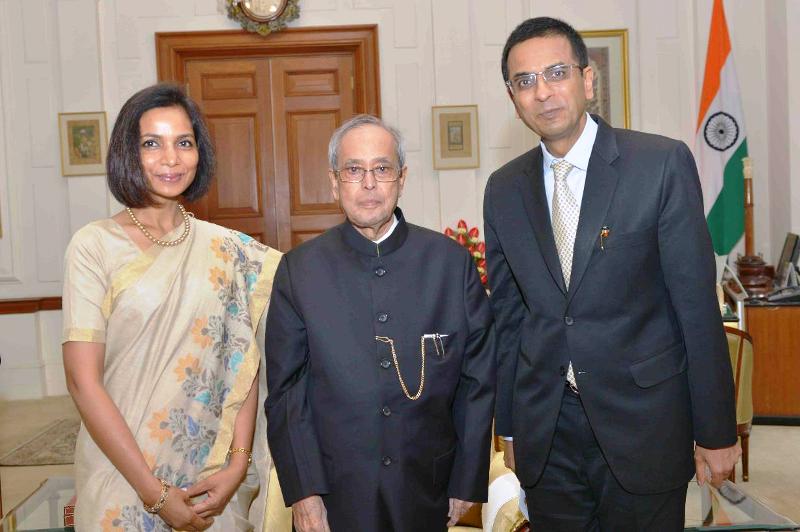 |
| Children | Son(s)- Chintan Chandrachud (advocate), Abhinav Chandrachud (advocate)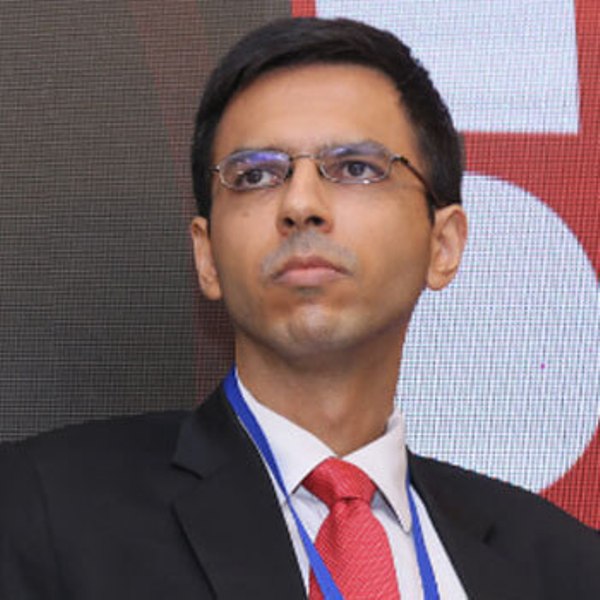 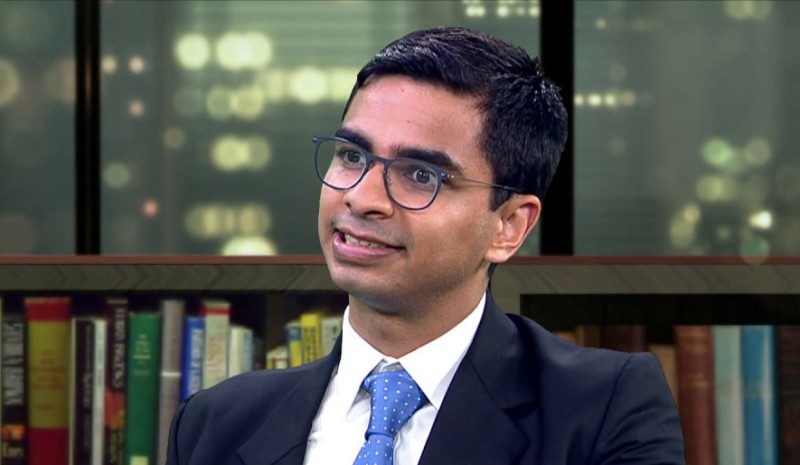 Daughter(s)(Foster)- Mahi and Priyanka (both are differently-abled) [6]The Hindu 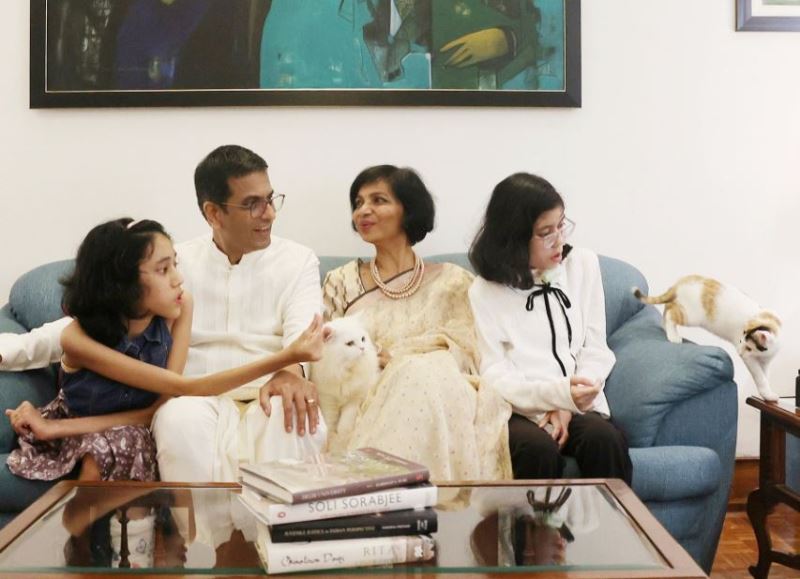 |
| Parents | Father- Yeshwant Vishnu Chandrachud (16th Chief Justice of India)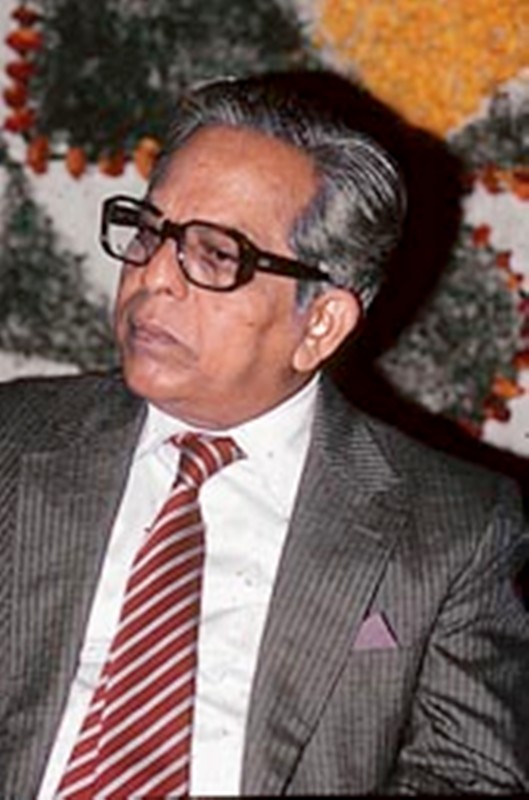 Mother- Prabha Chandrachud (classical musician) Note: Y. V. Chandrachud is the longest-serving Chief Justice in India, who served for a tenure of 7 years and 4 months i.e, 2696 days. |
| Siblings | Sister- Neema Kulkarni |
| Favourites | |
| Cricketer(s) | Virat Kohli, Sunil Gavaskar, Sachin Tendulkar, Jasprit Bumrah, Rahul Dravid, Garfield Sobers, Viv Richards, Clive Lloyd, Andy Roberts, Michael Holding, Joel Garner, Malcolm Marshall, Dennis Lillee, Jeff Thomson |
| Sport | Cricket |
| Singer | Chris Martin |
| Rockband | Coldplay |
| Song(s) | Fly On by Coldplay, Despacito by Luis Fonsi |
| Style Quotient | |
| Car Collection | Mercedes-Ben E 350d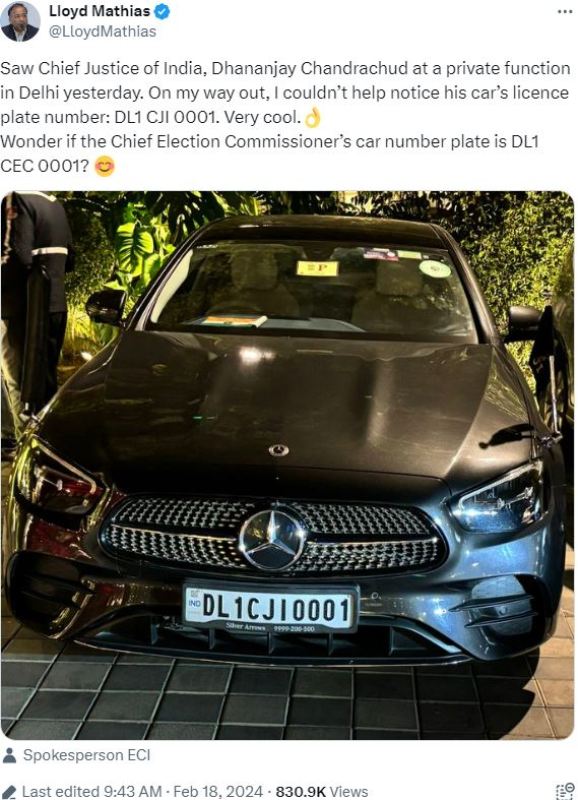 Note: In February 2024, a picture of his car circulated widely online after attention was drawn to the licence plate featuring the abbrevation 'CJI.' |
| Money Factor | |
| Pension (As CJI) | Rs 1.40 lakh per month + other allowances |
Some Lesser Known Facts About DY Chandrachud
- DY Chandrachud is the 50th Chief Justice of the Supreme Court of India. He has served as the Judge of the Supreme Court of India (2016-2022). From 31 October 2013 to 12 May 2016, he served as the Chief Justice of the Allahabad High Court, and from 29 March 2000 to 30 October 2013, he served as the Judge of the Bombay High Court.
- He grew up in Mumbai.
- After his LLB in 1982, he worked as a junior prosecutor for a while during which he assisted various lawyers and judges. He also drafted some briefs for advocate Fali Sam Nariman.
- Thereafter, he moved to the US, where he worked at the law firm Sullivan and Cromwell LLP following his graduation from Harvard.
- After returning to India, he started practising at the Supreme Court of India and the Bombay High Court.
- In June 1998, he was designated as a Senior Advocate by the Bombay High Court.
- Thereafter, he appeared in several important cases involving public interest litigation (PIL), rights of bonded women workers, rights of HIV-positive workers, contract labour and rights of religious and linguistic minorities. He has represented several public bodies including the Reserve Bank of India, Port Trusts, Municipal Corporations, and Universities.
- He was also appointed by Supreme Court to submit a report on the state of Bombay Benches.
- He taught International Law at Oklahoma University, USA. Besides, he also worked as visiting professor of comparative constitutional law at the University of Bombay from 1988 to 1997. Apart from that, he has delivered lectures at the Australian National University, Harvard Law School, Yale Law School, and the University of Witwatersrand, South Africa.
- He started serving as a judge at the Bombay High Court on 29 March 2000 until his appointment as Chief Justice of the Allahabad High Court on 31 October 2013. During this time, he also held the position of Director of the Maharashtra Judicial Academy.
- He became the executive chairman of the National Legal Services Authority in 2022.
- He has served as the Chairperson of the e-Committee of the Supreme Court of India.
- On 11 October 2022, the Chief Justice of India U.U. Lalit nominated Justice D.Y. Chandrachud as his successor. With this appointment, history was created in the Indian judiciary as D.Y. Chandrachud and his father, Y V Chandrachud, became the father-son duo to have served as CJIs.
- In an interview, he revealed that he was an avid music lover, and would DJ during his college days.
- On 6 January 2023, he brought his two foster daughters to the Supreme Court premises took them to his courtroom (first court), and told them, “See, this is where I sit.” He also explained to them about his workplace and showed them the place where the judges sit and where the lawyers argue their cases. Reportedly, his daughters had expressed a desire to see his workplace. [7]The Hindu
- In August 2024, he revealed that he had decided to adopt veganism after getting inspired by his daughter. He also claimed that he has stopped using silk and leather products.
- Justice Sanjiv Khanna replaced him as the CJI on 11 November 2024.
- Soon after the declaration of the 2024 Maharashtra Vidhan Sabha elections results, Sanjay Raut called a press conference in which he laid the blame for the defeat of the Shiv Sena on the former Chandrachud. He said that Chandrachud’s delay in giving judgment on crucial matters like disqualification on the grounds of defection caused the defeat.
References/Sources:

